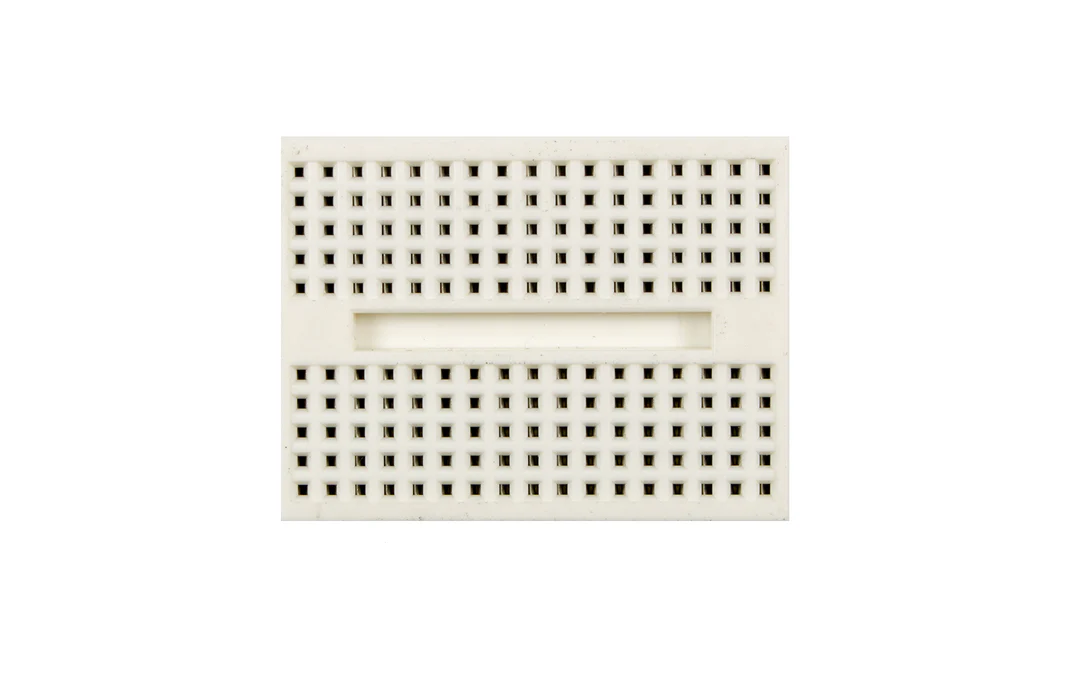
Overview
This is a small breadboard (4,6x3,6 cm) with 170 tie points. It is self-adhesive and compatible with the Arduino Proto Shield.
Get Inspired

We are excited to announce our team will be traveling to Amsterdam for The Things Conference on September 22nd-23rd, where Arduino will be among select exhibitors. The Things Conference is the world’s largest conference about LoRaWAN®, bringing together the industry’s major players contributing to this technology’s development in a two-day deep dive dedicated to making business operations smarter. This year’s edition will focus on the main topic of digital transformation – as seen through the lens of LoRaWAN®, of course! Connect with us at The Things Conference Don’t miss your chance to meet our experts in person at Amsterdam’s The Kromhouthal – a former marine engine factory now turned into a unique event venue. We’ll be showcasing some of our best LoRaWAN® products and solutions: The Portenta Vision Shield LoRa®, designed to boost Arduino Pro’s H7 module with the capability to run embedded computer vision applications, connect wirelessly via LoRa® to the Arduino Cloud (or third-party infrastructure), and activate systems upon the detection of sound events; The Portenta Max Carrier, which can augment Portenta H7 or X8 with LoRa® connectivity and transform existing Arduino Pro modules into single-board computers or reference designs that enable edge AI for high-performance industrial, building automation and robotics applications;The Arduino MKR WAN 1310, an entry-level option featuring the renowned versatility of the MKR family: a practical and cost-effective solution to add LoRa® connectivity to projects requiring low power;Last but not least, the newly launched WisGate Edge Lite 2 and WisGate Edge Pro: ready-to-use, industrial-grade gateways for LoRaWAN® connectivity powered by RAKwireless™. On September 22nd, the packed schedule of The Things Conference also includes a keynote by Sebastian Romero, Lead Interaction Designer & Creative Technologist at Arduino: “Predictive Maintenance with an Arduino-based







